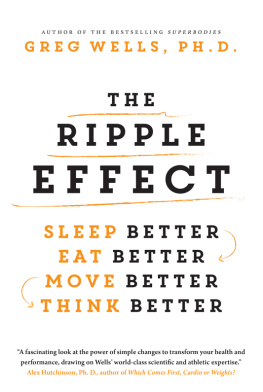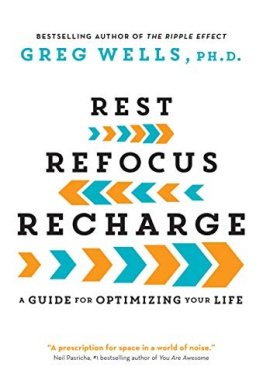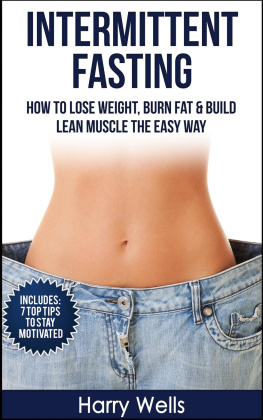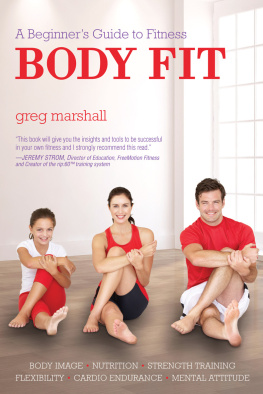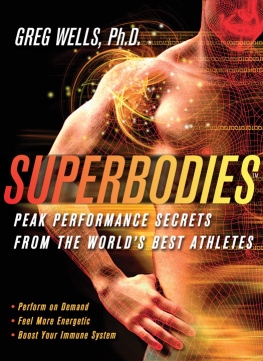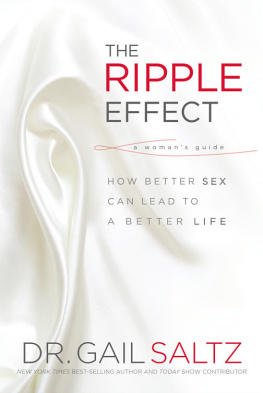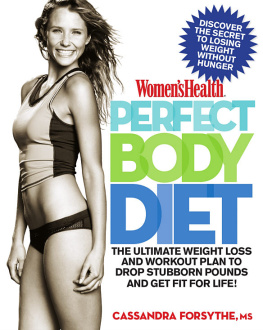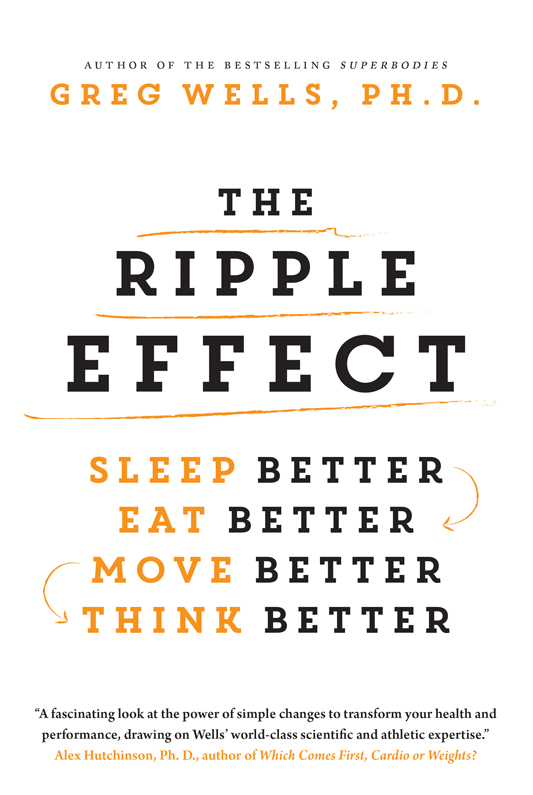IT WAS AUGUST and I was sitting on a school bus that was driving down a mountain road. It was a beautiful day. I looked out the window at the clear sky and at the trees, lakes, and mountains around me. The air outside smelled of pine. Healthy, fit, lean people surrounded me. We were on our way to the start line of an Ironman race. Yet I was thinking about dying. Not dying as in Oh, man, this workout is going to hurt, but really dying. You see, 12 months earlier I had been a patient in the cardiac ward of a hospital.
Life was happening. I had a 2-year-old daughter, whom I love dearly. But anyone who has had kids knows that with the love and happiness come exhaustion and sleeplessness. My wife, finishing grad school, was up studying at all hours. I was launching new research programs at the university where I am a professor and at the Hospital for Sick Children, in Toronto, where I work as a scientist. My first book, Superbodies, was about to be published. I was getting ready to go to London, to do sport science analysis for the upcoming Olympic Games TV broadcast. And we were moving houses. As a result, I wasnt sleeping well or eating well, and I certainly didnt have the time or the energy to work out consistently.
I was unfit and unhealthy. To anyone on the outside looking at me, I appeared to be successful. I had a great family, awesome jobs, a book under my belt, and lots of public speaking and media engagements. But on the inside I had become fragile. I was tired. So when my daughter brought home a virus she had picked up at her daycare, I was particularly susceptible to it. It went straight to my heart, causing viral myocarditisinflammation of the heart tissue. It felt as if I had a deep ache in my chest. Not a good feeling to have when youre only 40 years old. So I checked myself into the hospital. (My daughter was fineshe had only a slight cold.)
Lying in my hospital bed, staring at the ceiling, I wondered, How did I end up here? This thought quickly shifted to How do I get out of here? and then, more importantly, How do I make sure I never, ever come back?
After a few days, a notion began to emerge for me. Each night I was woken by various alarms going off. That there were lights on seemingly everywhere didnt help my sleep either. And the food was about as unhealthy as you can get outside of a fast food restaurant. The more I lay around, undergoing various tests, the worse I felt. I was depressed about my health and state of being: I couldnt sleep or eat healthily, plus I was pretty much immobile. My mental state was deteriorating. I realized that my experience in the hospital, which should be a place of healing, was a metaphor for the health challenges faced by the entire world.
Our world is facing four interrelated grand epidemicssleeplessness, obesity, inactivity, and mental illnessthat are causing people to struggle on a daily basis. Consider this:
We are in a global sleeplessness epidemic that affects close to 20% of the population.
Non-communicable diseases that can be caused by poor nutrition and physical inactivity such as cancer, type 2 diabetes, and cardiovascular disease are now the leading cause of death in all parts of the world except Africa.
Almost 60% of Canadians and 70% of Americans are now overweight or obese.
The World Health Organization has identified physical inactivity as one of the greatest threats to human health.
One in five Canadians will suffer from mental illness in their lifetime.
What does this mean? That billions of people are missing out on potential creativity, problem solving, ingenuity, inventiveness, and, ultimately, happiness.
These statistics terrified and upset me. So I opened a new window on my iPad and began reading the latest science on how to get healthy and fit, avoid chronic illness, be happy, learn more, and concentrate better. I wanted to be ultra-healthy and to perform at a high level, both physically and mentally. Over and over, the science made it plain: If I wanted to do all these things, I needed to sleep soundly, eat smarter, move more, and think clearly. Most importantly, I had to do all four. Any one of them alone would not be enough. They are all interconnected. And so I began this journey. The first thing I did, lying there in the cardiac ward, was register for Ironman.
Realizing the importance of the four factors and their interconnectedness brought about a fundamental shift in my thinking. Im an exercise physiologist, specializing in analyzing, understanding, and impacting extreme situations. I work as a scientist and physiologist. I study children with chronic illnesses, elite athletes, and physiology in extreme environments, such as mountains and deserts. I do all this to help me understand how disease, training, and the environment affect us, and how we can adapt to improve our health and reach our potential as human beings. Thats my lifes work. My team mostly focuses on using exercise in combination with advanced tests such as MRIs to help understand diseases like cystic fibrosis, leukemia, obesity, and congenital heart diseases and to develop new exercise and physical activity therapies. The leap in thinking, which unfortunately took a personal crisis to bring me to, was that if we can combine exercisepowerful and beneficial on its ownwith nutrition, sleep, and psychology, we can build an entirely new holistic approach to health and high performance.
And now I had discovered my mission: to solve a billion-person problem.
THE RIPPLE EFFECT
TRADITIONALLY IN WESTERN medicine, sleeping, eating, moving, and thinking are treated separately. If you want to lose weight, your doctor tells you to go on a diet, but not necessarily about the importance of sleep. If you want to sleep better, youre given sleep medication, but youre often not told to exercise during the day. If you have depression, you may not be encouraged to move more as part of your treatment.
We are missing out on a powerful insight that, if applied consistently over time, will result in exponential improvements in your health and in your ability to do the things in life that you care about most. This insight is that sleeping soundly, eating smarter, moving more, and thinking clearly are all interconnectedyou cant outrun a bad diet, for example, and a proper diet cant make up for a sedentary lifestyle. These four factors are amplifiers for each other. When you put them together, you end up with much more than the sum of the individual parts.
When you make sure you have a great nights sleep before a big race, presentation, or exam, youre also regulating those hormones that help regulate your appetite and satiety. When you eat foods that improve your energy levels, youre helping prevent cardiovascular disease. When you walk for 15 minutes to activate your brain before sitting down to do your best creative work, youre also reducing your risk of certain types of cancer. Moving from distraction to focus that helps us think more clearly also lowers stress hormones that can cause disease. Its when we combine sleeping, eating, moving, and thinking better that we can make incredible gains in our health and in our lives. I call this the ripple effect.
Heres a real-world example of what happens when you combine these ideas. About 8 months after I gave a presentation at a conference, I received this note from one of the attendees:
Hi, Greg,
Ive been meaning to send this note for a little while nowits a quick thank-you for the message you deliver and the change that it caused in my life.

